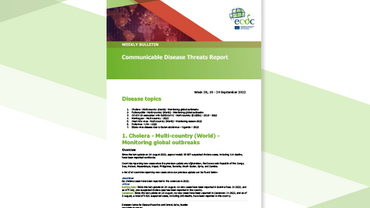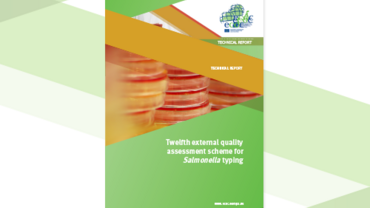External quality assessment (EQA) scheme on PCR for Bordetella pertussis, 2012 on behalf of the EUpert-labnet network
Twenty-one laboratories from 21 EU/EEA countries participated in the first external quality assurance scheme for Bordetella pertussis PCR by ECDC as part of the EUpert-labnet network.
Of 22 datasets (one laboratory submitted two datasets) all (100%) reported the ‘high’ concentration as positive for B. pertussis and 21/22 also reported the ‘medium’ concentration duplicate samples as B. pertussis positive. Only 15 out of 22 reported the ‘low’ concentration as positive for B. pertussis or Bordetella spp.
Real-time Bordetella PCR assays (both in-house and commercial) demonstrated greater sensitivity than conventional PCR assays as demonstrated by 85% (11/13) of those using qPCR reporting the ‘low’ concentration positive for B. pertussis or Bordetella spp. compared with 57% (4/7) of those using conventional PCR.
Several commercial kits are available for the detection of B. pertussis and/or B. parapertussis; however, care should be taken in the interpretation of the results. An internal process control to check for the presence of PCR inhibitors is recommended to avoid false-negative reporting.
This report presents the results of the first external quality assurance (EQA) scheme for Bordetella pertussis PCR funded by the European Centre for Disease Prevention and Control (ECDC). The EQA study was conducted between February and March 2012.
Executive summary
EQA exercises perform a crucial role and are useful to participating laboratories and to ECDC in improving and validating data collected from the Member States and the results of the 2012 EQA scheme present a sustained improvement.
EQA is part of quality management systems run by an outside agency to evaluate the performance of laboratories. In many countries, increases in awareness of pertussis infections and reported numbers of cases have highlighted the need for good laboratory tests for the detection, identification and characterisation of clinical infections caused by B. pertussis and other Bordetella species.
Pertussis (whooping cough) is an acute bacterial infection usually caused by B. pertussis, which can affect people of all ages. Infants are the most vulnerable group with the highest rates of morbidity and mortality, while older children and adults usually display milder symptoms.
This EQA was done by ECDC on behalf of the EUpert-labnet network was conducted between February and March 2012.






